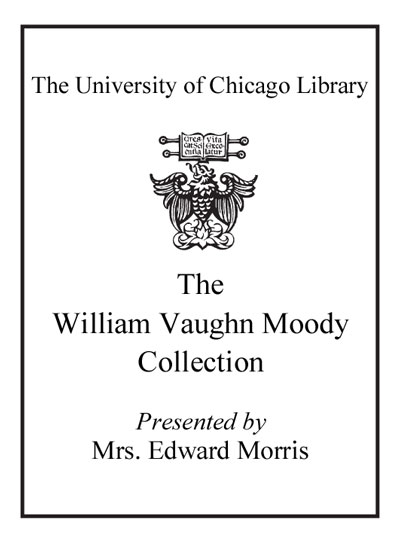Review by Booklist Review
Built from hundreds of interviews and Kathy Acker's voluminous notes and diaries, this monumental work details every facet of the remarkable and complicated life of a radical and influential writer who tragically died young in 1997. Acker's unsettled childhood in New York partly led to her lifelong dedication to her craft, as writing and reading became an escape; she also used writing as an act of self-mythologizing. McBride explains Acker's central place in many avant-garde art scenes and how Acker was a contradictory presence, an inspiration and a burden, generous and self-centered, and destructive and instructive. Acker married early (keeping that last name), and her many other relationships feature a lot in her fiction. Heavily influenced by William Burroughs, Patti Smith, Gertrude Stein, and the French provocateur Pierre Guyotat, Acker's DIY punk aesthetic and hyper-stylized prose meant she struggled to achieve recognition, having to take menial and tough jobs, including that of sex worker, but eventually she became a literary celebrity. McBride usefully traces a consistent focus on the body in her writing, such as her illuminating sexuality and tattoos. Stupendously well-researched and expertly constructed, this biography is a touchstone for anyone interested in a writer whose life was often as outlandish as her fiction.
From Booklist, Copyright (c) American Library Association. Used with permission.
Review by Publisher's Weekly Review
Critic McBride investigates novelist Kathy Acker's fiery personality and artistic inspiration in this comprehensive biography. McBride shows how Acker, who died in 1997, became a beloved name in experimental writing communities for her fragmentary novels depicting sexual promiscuity, queerness, prostitution, trauma, and incest. McBride finds it to be more than sensationalism: "For all of her books' vivid vulgarity, they asked fundamental questions. How do I cope with the pain of being unloved? What is good art? What is art good for? What knowledge exists outside our conscious minds?" Five sections, starting at Acker's birth in Manhattan in 1947 and ending at her funeral, cover about a decade each and examine the changes and developments in Acker's personal and professional lives. Though McBride accepts that certain details of Acker's biography must be "enclosed in quotation marks" because of her belief that "binary divisions between fantasy and reality... are false"), he manages to bring together her diaries, novels, poems, plays, and letters with reminiscences from her friends, lovers, and collaborators for a full portrait of her life. To McBride, inconsistencies or contradictions are revealing: "She didn't seek to be solved. Holes are escape routes, openings. They lead to unknown possibilities." The result is an excellent addition to American literary history. (Nov.)
(c) Copyright PWxyz, LLC. All rights reserved
Review by Kirkus Book Review
The tumultuous life of a singular artist. Journalist McBride makes his book debut with a perceptive, thoroughly researched biography of the experimental writer Kathy Acker (1947-1997), self-identified as queer, whose publications included 13 "groundbreaking novels," two novellas, screenplays, poetry, libretti, essays, and criticism. In 1988, McBride, then a college sophomore at the University of Toronto, heard her read and was mesmerized both by Acker's tattooed muscles and "her fusion of sex and literature, the streets and the academy." Her iconoclastic works featured a heady collage of "scenes, phrases, characters, and ideas from texts both canonical and otherwise," juxtaposed with "shards of her own diaries, sexual fantasies, gossip, political screeds, and blunt critiques of capitalism, liberalism, patriarchy, and language." She also clawed at childhood wounds caused by a cold, controlling mother and a father, she was stunned to learn, who was really a stepfather. Acker's biological father had abandoned her mother when she was three months pregnant. The "seesaw of seduction and betrayal" that began in childhood became a lifelong torment. McBride recounts Acker's love affairs, sexual liaisons, two failed marriages, "semi-regular abortions," sex work, and emotional afflictions--depression, anxiety, fear of abandonment--all of which fueled the writing that McBride closely examines. "She wrote," McBride asserts, "to figure out why she acted in certain ways, why she thought in certain ways, how her memory worked, how experience was perceived and processed and represented." Furthermore, "she wrote to complicate herself." Acker could be infuriatingly self-absorbed and needy. "She pushed people away as soon as they came close," writes McBride, "and then resented them for leaving her alone." Even when she attained literary success, she insisted she was "an outcast, a traumatized street kid who had overcome enormous pain and adversity." Informed by Acker's published works, private papers, and many interviews, McBride presents a persuasive case for her enduring significance as "an icon of unorthodoxy." A brisk, engaging literary biography. Copyright (c) Kirkus Reviews, used with permission.
Copyright (c) Kirkus Reviews, used with permission.
Review by Booklist Review
Review by Publisher's Weekly Review
Review by Kirkus Book Review

